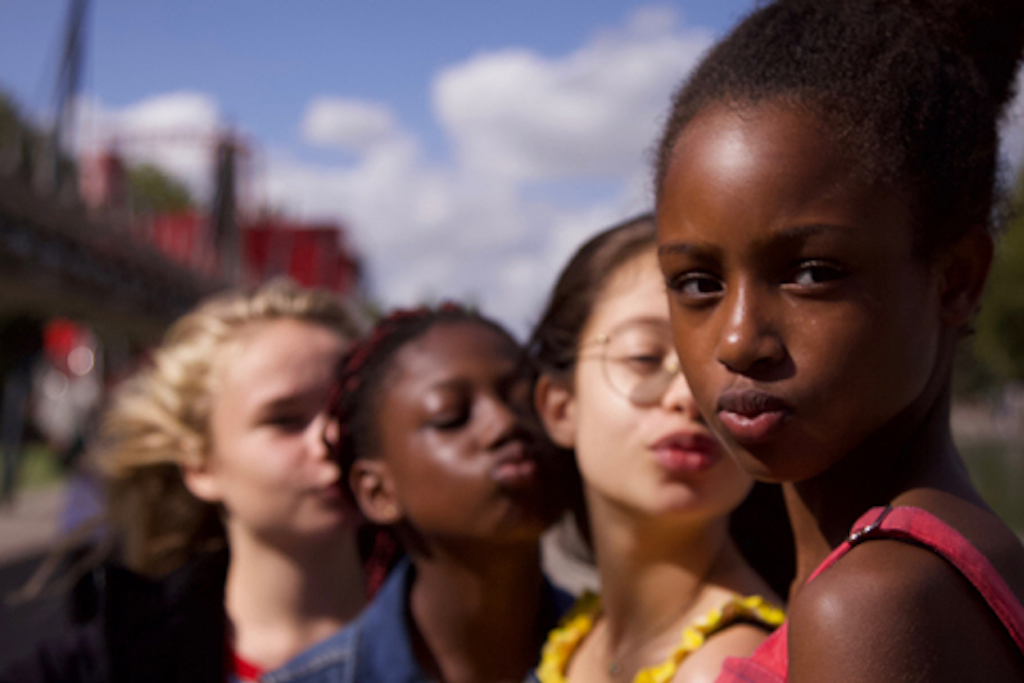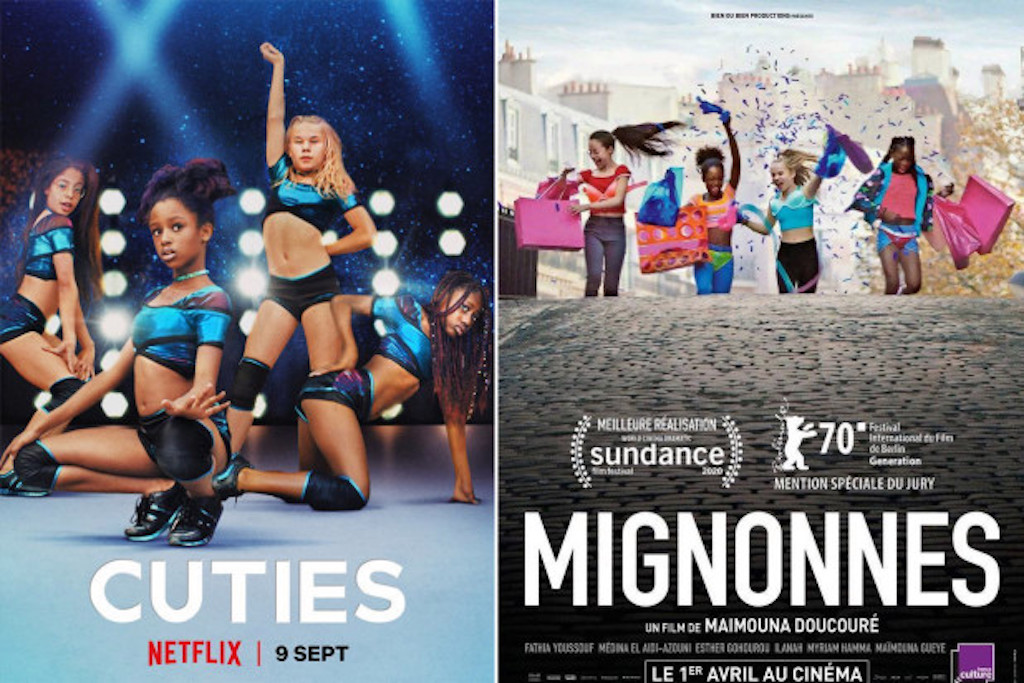
How Netflix’s ‘Cuties’ Became The Most Misunderstood Film Of The Year
by Jared RichardsCuties, a French film acquired and dubbed into 40+ languages by Netflix after it received glowing reviews at Sundance Film Festival, has spawned a ‘cancel Netflix’ movement on social media over beliefs that it promotes pedophilia.
And now, with the film’s release in the US, it’s become wrapped up in QAnon conspiracies about child sex trafficking rings, and Republicans are demanding an investigation into a film they’ve never seen but merely heard of.
Here’s how Cuties became the most misunderstood film of the year.
What Even Is Cuties?
Cuties — aka Mignonnes in French — is directed and written by French-Senegalese director Maïmouna Doucouré, focusing on Amy, an 11-year-old French-Senegalese girl in Paris. It’s her debut feature film, and was based off her experiences as a child, being caught between two cultures.
Fixated by her fellow tween neighbours’ ‘twerking dance group’, Amy joins them as a form of rebellion against her stifling, Muslim family and culture, and dives deep into acting adult, which includes shoplifting, sending nudes, and explicit dancing.
Early reviews from Sundance such as Screen Daily‘s describe the film as a clear “cautionary tale” about the hyper-sexualisation of young girls, where revealing outfits and age-inappropriate moves are “explicitly designed to shock mature audiences into contemplation of today’s destruction of innocence”.
“It’s a portrait of girls that decries how sexuality is force-fed to them and/or viewed as the only way to foster self-esteem at far too young an age,” reads the Rolling Stone review. “It is the polar opposite of what it’s accused of being.”
The film, which saw Doucouré win a Sundance award for directing, has been compared favourably to 2014 French coming-of-age film Girlhood, which also focuses on a group of young Black girls in Paris, and US film The Fits.
“Cuties is a difficult and challenging film, pushing the idea of “depiction does not equal endorsement” to its limit. It will not surprise me to read responses still accusing the movie of what it condemns,” wrote a reviewer for Roger Ebert.com.
“However, Doucouré uses these uncomfortable images to provoke a serious conversation about the sexualization of girls—especially regarding girls of color, the policing of a girl’s sexuality, double standards, the effect of social media on kids, and how children learn these behaviors.”
Doucouré herself has stated she was inspired to write the film after being shocked by the way pre-teen girls danced at a neighbourhood party in Paris, and wanted to critique the hyper-sexual culture children are raised in.
“I decided to do research to see if they were aware and conscious of what they were doing,” Doucouré said, via IndieWire. “I met over a hundred preteens who told me their stories. I asked them how they felt about their femininity in today’s society. I wanted to know how they dealt with their self-image at a time when social media is so important, and they have access to so much information and so many images.”
“I explained to them everything I was doing and the research that I had done before I wrote this story. I was also lucky that these girls’ parents were also activists, so we were all on the same side. At their age, they’ve seen this kind of dance. Any child with a telephone can find these images on social media these days.”
How Did The Backlash Start?
The backlash to Cuties is overwhelming.
Nearly 600,000 people have signed a Change.org petition asking Netflix to not distribute the film and those involved be charged with child exploitation; 4Chan banned images relating to the film from its site; and #CancelNetflix has trended on Twitter on and off since Cuties‘ US release on September 9, with users claiming to have cancelled their accounts over the streaming service “distributing child porn”.
It began before the film was released, when Netflix released the trailer and promotional artwork for the film in mid-August. It was the latter, in particular, that caused controversy, as Netflix’s design showed the four lead girls in their dancing attire, posing provocatively.
Below is a side-by-side of the Netflix poster, and the original poster for the French cinematic release (originally April 1 before COVID-19 pushed it back to 19 August).

The outfits are taken from the dance scene in the film, in which the audience actively boos the children and watch in active horror.
It was the poster that garnered the Change.org petition and original backlash, with many questioning what the film was. In response, Netflix apologised and updated the promotional material, saying they were “deeply sorry for the inappropriate artwork”. “It was not OK, nor was it representative of this French film which won an award at Sundance,” they added.
Netflix CEO Ted Sarandos called Doucouré to apologise for the poster, given she wasn’t involved in the marketing of the film. But the film was now across a wider audience, and as the author of the Change.org petition said, “THIS PROBLEM ISNT THE ARTWORK ITS THE FACT ITS ABOUT TWERKING ELEVEN-YEAR-OLDS FOR ADULT VIEWING PLEASURE”.
Things bubbled along until the film’s US release on September 9, which saw a new, far-reaching wave of criticism. Ultra right-wing websites such as Breitbart and figures like InfoWars’ Alex Jones began calling those supporting Cuties pedophiles, effectively encouraging doxxing of film critics. Doucouré has said she’s received death threats over the film.
The film’s trailer is now among YouTube’s most disliked videos of all-time, and Cuties has been review-bombed on Rotten Tomatoes, which as of writing is sitting at an 87 percent average among critics and 3 percent among the public.
Since its release, US politicians across bi-partisan lines became critical of the film, with the likes of Democrat Tulsi Gabbard and Republican Ted Cruz either outright calling it “child porn” or implying it could be, respectively.
Cruz has asked the US justice department to investigate whether the film “violated any federal laws against the production and distribution of child pornography.” And in Turkey, the national media watchdog has determined the film is ‘abusive’ and may issue a penalty to Netflix.
And then, believers of various QAnon conspiracies/delusions began to point towards the film as a sign of a global child sex trafficking cabal.
At the same time, other criticism is far more measured, with people who actually watched the film questioning not the film’s intentions to condemn hypersexualisation, but whether it succeeds in doing so. Critics largely think it does; individuals may, naturally, disagree.
What Has Been The Response?
Netflix has given statements continuing to defend the film.
“Cuties is a social commentary against the sexualization of young children,” a Netflix spokesperson told both The Verge and Time. “It’s an award-winning film and a powerful story about the pressure young girls face on social media and from society more generally growing up — and we’d encourage anyone who cares about these important issues to watch the movie.”
Meanwhile, Doucouré has continued her through-line in interviews, and encourages people to watch it.
“I realize that the people who have started this controversy haven’t yet seen the film,” she told Zora. “Netflix has apologized to the public and to myself. I’m hoping that these people will watch the movie now that it’s out. I’m eager to see their reaction when they realize that we’re both on the same side of this fight against young children’s hypersexualization.”
Cuties is now streaming on Netflix.